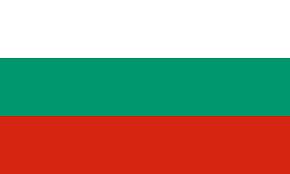From Albanian to Zulu 24/7

BULGARIAN TRANSLATION SERVICES
worldLINK BULGARIAN TRANSLATION SERVICES
BULGARIAN DOCUMENT TRANSLATION
BULGARIAN INTERPRETATION
BULGARIAN SOFTWARE AND WEBSITE LOCALIZATION

BULGARIAN LANGUAGE IN THE WORLD
With approximately 8 million native speakers, Bulgarian is the official language of Bulgaria and belongs to the South Slavic language family. It uses the Cyrillic script, which distinguishes it from many other European languages. Bulgarian boasts a rich cultural heritage rooted in Orthodox Christianity, folk traditions, and literary history, making it a significant language for cultural and economic exchanges in the Balkans. As Bulgaria strengthens its ties within the European Union and beyond, Bulgarian has become an important language for international business, trade, and tourism.
CHALLENGES IN BULGARIAN TRANSLATION


worldLINK BULGARIAN INTERPRETERS
Our quality assurance system combines advanced technology with a client-centered approach, allowing us to deliver accurate, cost-effective, and timely solutions. Through a three-step process—project analysis, production, and post-production—worldLINK maintains the highest standards for every Bulgarian translation project. Supported by specialized software and an online project management system, worldLINK provides efficient services tailored to meet each client’s unique needs. Our team is committed to delivering accurate, innovative translations of the highest quality.
INDUSTRIES IN BULGARIA
Bulgaria has a diversified economy, with several key industries contributing to its growth and positioning it as an attractive location for international business and trade. Here are some of Bulgaria’s main industries:
- Information Technology (IT) and Software Development: Bulgaria is a prominent IT outsourcing hub, with a highly skilled, multilingual workforce specializing in software development, cybersecurity, and IT consulting. Known as the “Silicon Valley of Eastern Europe,” Bulgaria attracts numerous global tech companies due to its favorable business environment, making IT one of the country’s fastest-growing sectors.
- Energy and Renewable Resources: The energy sector is critical to Bulgaria’s economy, with a mix of coal, nuclear, and renewable energy sources. Bulgaria is investing in renewable energy, especially wind and solar, as part of its efforts to align with European Union green energy goals. The country’s energy exports to neighboring countries also enhance its regional influence.
- Tourism and Hospitality: Bulgaria is a popular destination for tourism, with attractions ranging from Black Sea resorts to historical cities and ski resorts. Cultural and eco-tourism are also on the rise, drawing visitors to explore Bulgaria’s UNESCO World Heritage Sites, rich history, and natural beauty. The tourism sector is a major source of foreign revenue and employment.
- Agriculture and Food Processing: Agriculture is a fundamental part of Bulgaria’s economy, with the production of wheat, barley, sunflowers, and lavender as key exports. The country is one of the largest lavender oil producers in the world. Bulgaria also has a growing organic farming industry and a well-developed food processing sector that serves both domestic and international markets.
- Pharmaceuticals and Healthcare: The pharmaceutical industry is expanding in Bulgaria, focusing on both research and manufacturing. With a skilled workforce in science and medicine, Bulgaria produces generic and specialty medications, supplying both the local market and exports. The healthcare sector is also seeing growth, particularly in medical tourism and wellness services.
- Textiles and Apparel: Bulgaria has a long tradition in textile and clothing production, catering to European fashion brands and providing “cut-make-trim” (CMT) services. The industry benefits from Bulgaria’s location and competitive production costs, making it an attractive outsourcing destination for textile and apparel production.
- Automotive Parts and Machinery: Bulgaria has a growing automotive parts industry, manufacturing components such as electronics, cables, and car seats for European automobile manufacturers. The machinery sector also plays a crucial role, producing equipment for agriculture, construction, and energy.
- Wine Production: Bulgaria has a thriving wine industry, producing high-quality red and white wines that are gaining international acclaim. With a winemaking history dating back over 5,000 years, Bulgaria is known for varieties such as Mavrud, Melnik, and Muscat. The wine industry contributes to both the tourism sector and exports.
- Construction and Real Estate: Urban development and infrastructure projects are driving growth in Bulgaria’s construction sector. Significant investments in residential, commercial, and tourism-related real estate developments, particularly in Sofia and coastal regions, contribute to the sector’s steady expansion.
- Logistics and Transportation: Bulgaria’s strategic location at the crossroads of Europe and Asia has made it a vital hub for logistics and transportation. Major infrastructure projects, including highways and rail networks, support Bulgaria’s role in regional and international trade, with Bulgarian ports on the Black Sea also facilitating imports and exports.
